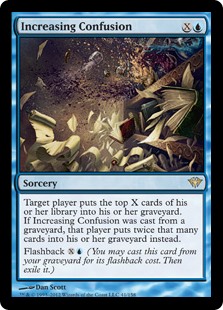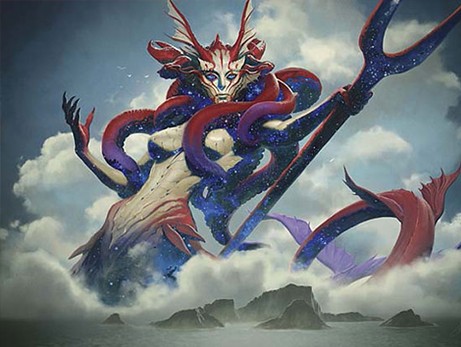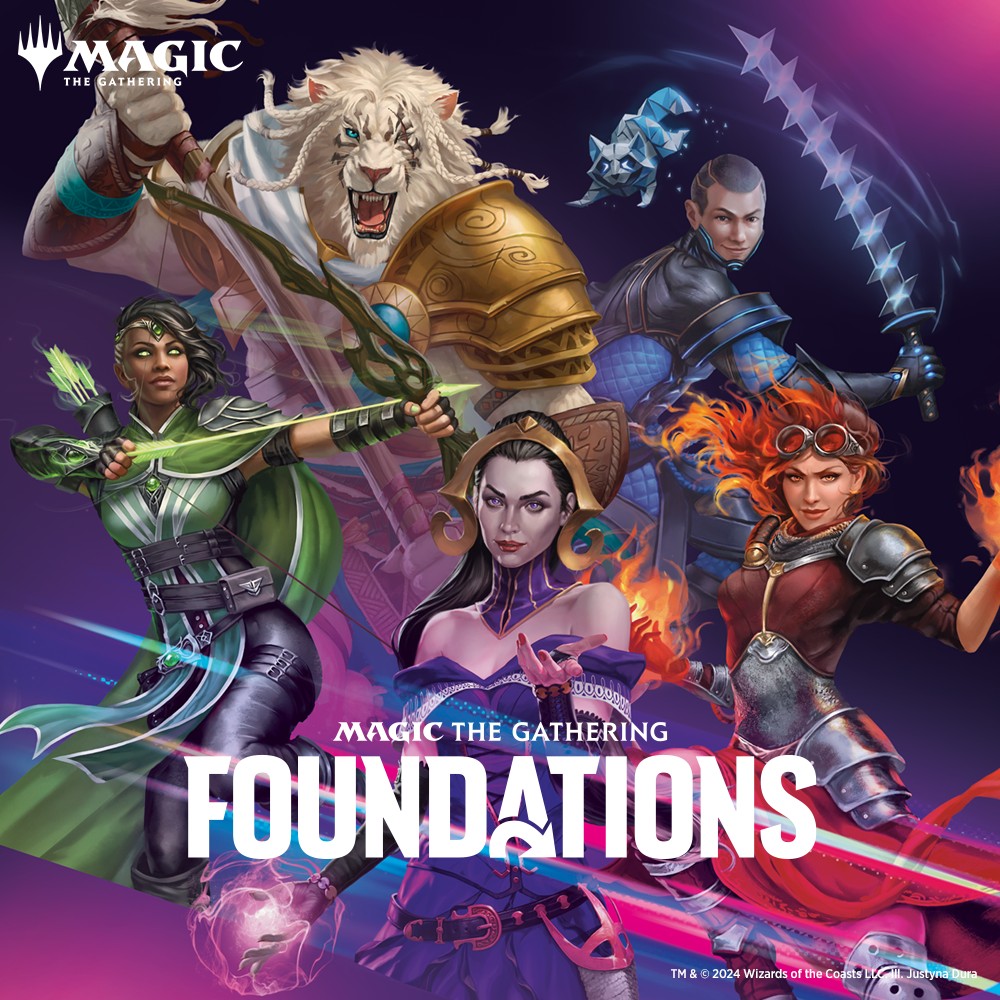Welcome back to our mini-series on improving your Magic game.
Today’s topic is about Optimizing Game Theory in Magic or, as we’ll call it, Magic GTO.
Wait…Optimizing Game Theory…What?
Optimizing Game Theory is a concept that refers to an unexploitable strategy that one can take in a situation where their opponent cannot make a profitable counter. This has been a popular discussion in Poker, and it is constantly brought up when players make adaptations to their play.

You’re probably wondering, “How can this help me?”
There are so many plays that have been repeated many times over the course of a format and have become so intuitive that most players accept them as the “right play”. Think about this:
You are playing the Pro Tour Hawaii 2016 Standard format. You’re on turn six and your opponent draws and plays their sixth mana source, lets out a sigh, and passes the turn with four blue sources and two red sources. What could they possibly be holding?
[toggle title="Click here for the solution."]
Probably Torrential Gearhulk. There was a time when passing with six mana up was synonymous with that card.
[/toggle]
You are playing the UW flash mirror and you’re debating attacking with your Spell Queller, but your opponent has five cards in their hand and three Islands and two Plains up. Do you attack?
[toggle title="Click here for the solution."]
Probably not, because they're most likely holding Archangel Avacyn.
[/toggle]
You are playing Mirrodin Standard and are playing the Mono Red deck versus a UW opponent who is at five life. Your opponent has an untapped Island and Plains. Do you play Shrapnel Blast targeting your opponent, or do you wait hoping that they tap out?
[toggle title="Click here for the solution."]
I’d wait because they probably have Mana Leak in their hand, and I’m sure they will tap out eventually.
[/toggle]
So what did every situation have in common besides your opponent playing a blue deck? You put your opponent on cards and played appropriately around those. But what if you made it so that your opponents played around cards you didn’t have, or didn’t play around cards that you did have? How much easier would your games be then? Let’s see how we can accomplish that:
Playing unexpected cards or adding new cards to an existing archetype:
You’re at the PTQ the week after Pro Tour Hawaii 2016 and you’re playing against a Aetherworks Marvel deck. You pump the fist since you’re playing a UW control deck and this is a fantastic matchup for you. When you tested with your buddies you found that you could easily win by casting a Gideon, Ally of Zendikar on turn six and hold up Negate. So turn six comes around and you cast Gideon, and your opponent slumps into their chair as they have no choice but to let it resolve.
Your opponent casts Glimmer of Genius at your end of turn, untaps, plays a sixth land, and casts Aetherworks Marvel. You smoothly slide Negate onto the table and your opponent hurriedly slams their own copy of Negate onto the table. They spin into Ulamog, the Ceaseless Hunger, exiling your Gideon and your land, and you look down at your hand of counterspells and realize that a game that you had no shot of losing has turned into a game that you have no shot of winning.
At some point or another during your Magic career you will definitely run into a situation similar to the above. Your carefully planned game has gone down the drain since assumptions you have made based on common knowledge have proven incorrect since your opponent chose to innovate to make it null and void. In this case the Marvel player decided that they wanted to run a couple copies of Negate maindeck to help against the control decks.
This is where testing can backfire, because a lot of assumptions are made about the specific configurations of cards that your opponent can play. It is always safer to edge on the side of caution than to allow yourself to get beaten by slight changes in an archetype.
This also applies to sideboarding. A common situation is that players add creatures to their deck after sideboarding when they ran no creatures maindeck. Most players will just shave all of their removal without giving it a second thought, and this is when those creatures become much better, since there's no way to remove them outside of combat. In the first few weeks of Marvel combo, Tireless Tracker started making its way into the sideboard until it became so obvious to everyone that it started getting cut, because now players would leave removal after sideboard.
You always want to look at how the most recent prominent decklist of your archetype and figure out how you can throw off your opponent while building your deck.
There are many implications of this in Limited as well. When a new set comes out, most players will memorize the important tricks - the cards that are commonly played and the ones that lead to the biggest blowouts. Over the course of a format, they will be exposed to that trick on countless occasions so it is further reinforced. However, there are many other tricks which are considered subpar, that become better once no one is even considering them. That's why you will see many pros play cards board in cards like Fog against their opponents in certain situations, because the edge of a trick like that when it's not even considered can be the difference between a win and a loss.
Mixing up your play pattern
This is one of my favourite things to do. Magic players tend to put you on the best thing that you can do on each part of your curve.
At Pro Tour Dublin in 2013, Mono Blue Devotion won the tournament and made up a majority of the Top 8. In the finals of a PTQ a few weeks later, I was playing a Mono Blue Devotion mirror versus local Tariq Patel. He had easily won game one while on the play since it was all about brute forcing your spells, and no player could react in a positive manner.
However, after sideboard we both knew that we were bringing in four copies of Gainsay (the counterspell, not Andrew Cuneo). After sideboard the mirror was typically won by the player who was able to resolve Thassa, God of the Sea first. In game two, I chose to “miss” my third land drop. Tariq instantly untapped and cast his Thassa into my Gainsay, and I played a land on turn four and cast my own Thassa and easily won the game from there.
Now why would Tariq just slam his game winner into Gainsay mana? Well, in his mind, I had to have Gainsay, a land, and Thassa, God of the Sea to punish him for casting his own Thassa, God of the Sea. By not playing a land on turn three, he instantly assumed that I didn’t have a land because it's normally assumed that if you had a land you would play it until turn five or six so that you could bluff spells. In his mind, the worst thing that could happen was his Thassa getting Gainsay’ed, but he would still be in the game because I wouldn’t have resolved Thassa, God of the Sea.
I ended up winning this game and the match, taking the PTQ down, but I credit this move with getting me back into the match.
You can do the same thing by “missing” your fifth land drop when your opponent expects a Fumigate. This will incentivize them to play more creatures into it because then you'll need a land and a Fumigate to win, and you have already “missed” a land.

So there you have it, more tools in your arsenal to become better at throwing your opponents off. Let me know what you thought of these in the comments and if you have any other ways of going against Magic GTO.
See you next week!
Sam


